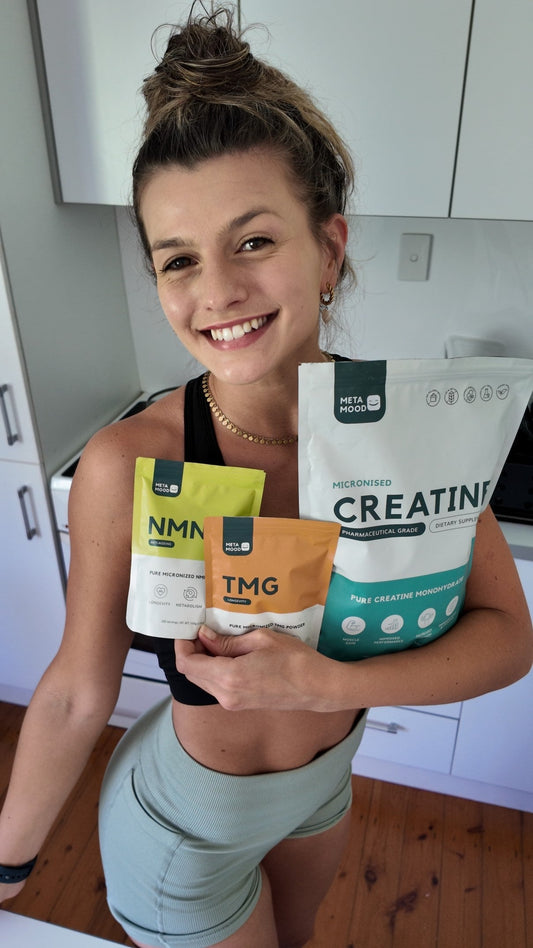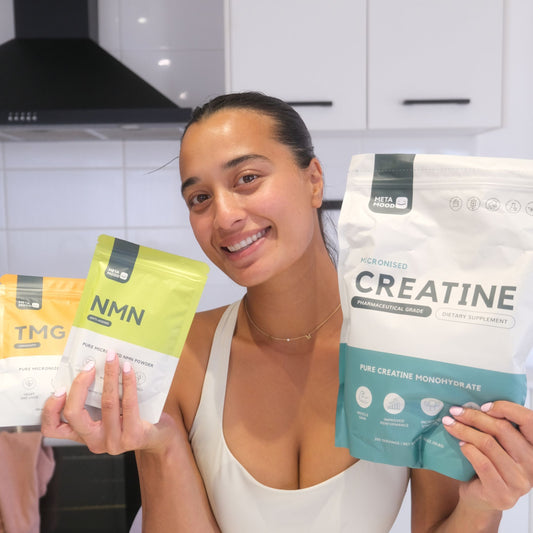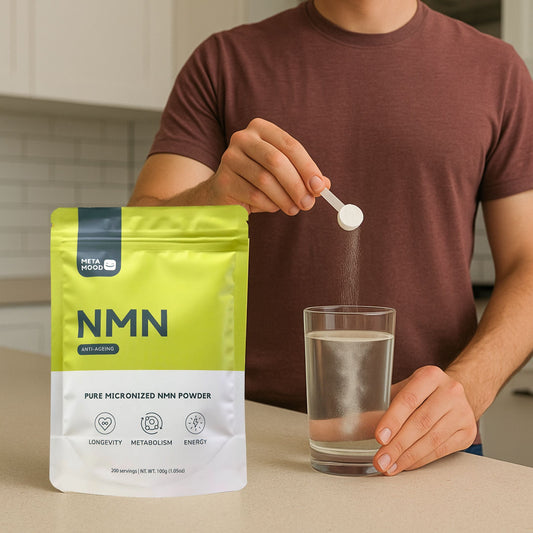Articles
Your trusted resource for health, wellness and supplement optimisation
Articles

The Ultimate Thrive Stack: How NMN, TMG, and Creatine Work Together for Maximum Energy, Mood, and Recovery
Combine NMN, TMG, and Creatine for enhanced energy, mood stability, and faster recovery. Ideal for athletes, aging adults, and cognitive health.
The Ultimate Thrive Stack: How NMN, TMG, and Creatine Work Together for Maximum Energy, Mood, and Recovery
Combine NMN, TMG, and Creatine for enhanced energy, mood stability, and faster recovery. Ideal for athletes, aging adults, and cognitive health.

Best Bulk Nutrients NMN Alternatives for Superior Performance
Bulk Nutrients offers NMN capsules containing 500mg of β-Nicotinamide mononucleotide with directions to "Take 1 - 2 capsules. Consume daily with or without food," manufactured by the Australian company that...
Best Bulk Nutrients NMN Alternatives for Superior Performance
Bulk Nutrients offers NMN capsules containing 500mg of β-Nicotinamide mononucleotide with directions to "Take 1 - 2 capsules. Consume daily with or without food," manufactured by the Australian company that...

Best AlphaCell Labs NMN Alternatives for Superior Performance
AlphaCell Labs offers 99.5% pure NMN supplements in 500mg capsules with third-party testing and a 60-day money-back guarantee, though according to their website some users report changes in energy within...
Best AlphaCell Labs NMN Alternatives for Superior Performance
AlphaCell Labs offers 99.5% pure NMN supplements in 500mg capsules with third-party testing and a 60-day money-back guarantee, though according to their website some users report changes in energy within...

How TMG and Creatine Work Together to Boost Strength, Energy, and Cognitive Health
Want better results from your supplements? Creatine and TMG work even better together, boosting your strength, brain power, and energy levels beyond what either can do alone. Here's why this...
How TMG and Creatine Work Together to Boost Strength, Energy, and Cognitive Health
Want better results from your supplements? Creatine and TMG work even better together, boosting your strength, brain power, and energy levels beyond what either can do alone. Here's why this...

Creatine for Women: Debunking Myths and Highlighting Creatine Benefits for Women
Uncover the truth about creatine for women: debunk common myths and explore its proven benefits for enhancing strength, cognitive performance, and overall health.
Creatine for Women: Debunking Myths and Highlighting Creatine Benefits for Women
Uncover the truth about creatine for women: debunk common myths and explore its proven benefits for enhancing strength, cognitive performance, and overall health.

Best Simply Nootropics NMN Alternatives for Superior Performance
Simply Nootropics Ageless NMN offers 100% pure powder made in New Zealand with third-party testing in Australia, claiming consumers report immediate cognitive benefits within hours though users typically notice improvements...
Best Simply Nootropics NMN Alternatives for Superior Performance
Simply Nootropics Ageless NMN offers 100% pure powder made in New Zealand with third-party testing in Australia, claiming consumers report immediate cognitive benefits within hours though users typically notice improvements...
